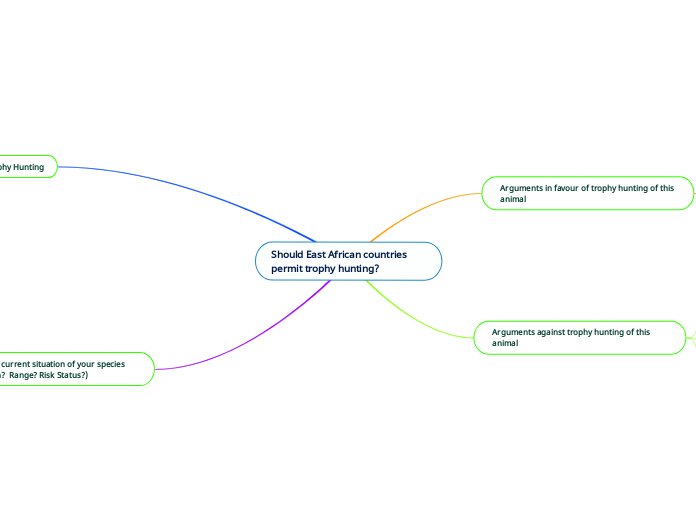Should East African countries permit trophy hunting?
Trophy Hunting
Trophy hunting generally involves the payment of a fee for a hunting experience, usually supervised, for one or more animals with specific desired characteristics (such as large body size or antlers). The “trophy” is a part of the animal such as the horns or head or skin and is usually kept by the hunter and taken home.
What is the current situation of your species (Population? Range? Risk Status?)
Leopard are widely distributed across Africa and Asia, due to habitat fragmentation and loss, their range has reduced by 31 percent worldwide in the past three generations (about 22 years).
Arguments in favour of trophy hunting of this animal
the safari hunting industry has quietly operated for well over a century and has now grown to an over $200 million dollar annual industry.
It can help to control the animals population. By starting many hunting events, the hunter will have a chance to hunt animals and help bring about a balanced food chain
Trophy hunting will stop the poaching which always the burden of the rangers.
Arguments against trophy hunting of this animal
Trophy hunting can hurt the overall population of a species
Many hunting group usually say that just a small amount of controlled trophy hunting does not harm populations, actually, the truth is more horrible than we thought. For example, there are approximately 600 male lions are killed every year on trophy hunts, including lions in populations that are already declining from other threats
Financial incentives can hurt the population of a species
Monitoring the population of a species takes a lot of resources for conservation groups and governments. It is possible that misinformation can lead to incorrect reporting of numbers to encourage hunting, or the financial benefits of continued hunting lead groups to inflate their reported numbers.
Trophy hunting can be linked to poaching
If trophy hunting were to ever hope to be known as “conservation,” there would have to be extremely close monitoring by scientific and state bodies regarding the health and legality of the hunt. While a certain amount of regulation does take place, it is not enough to prevent the possibility of trophy hunts being used as a cover for poaching.
